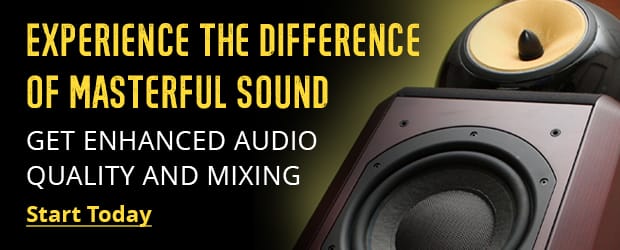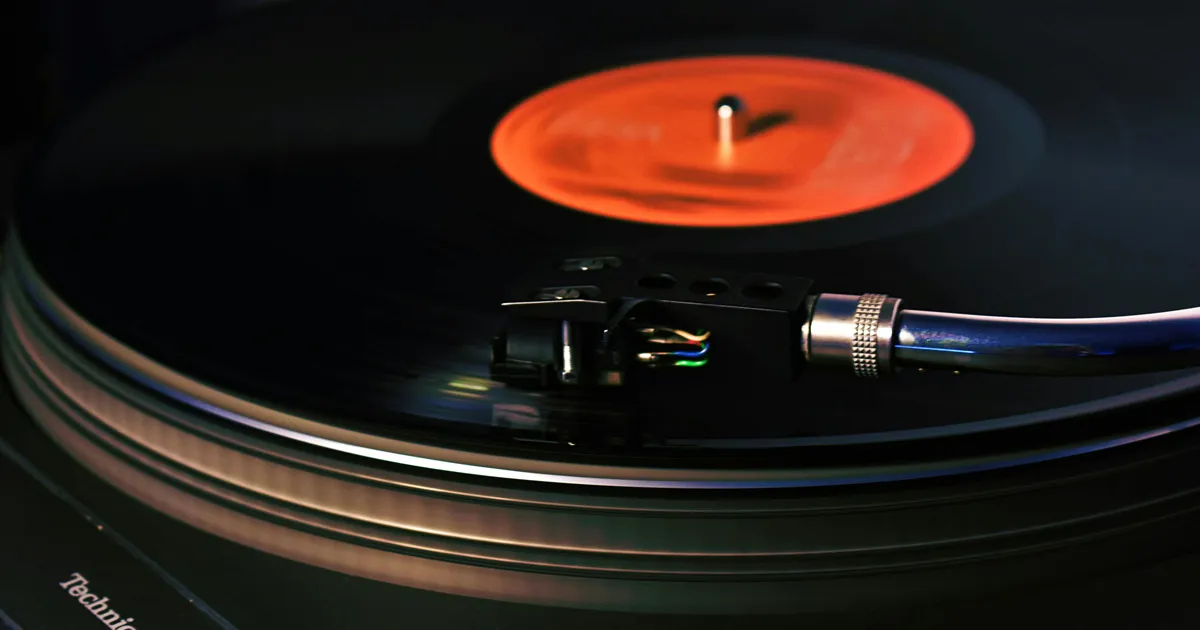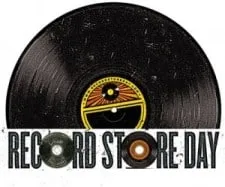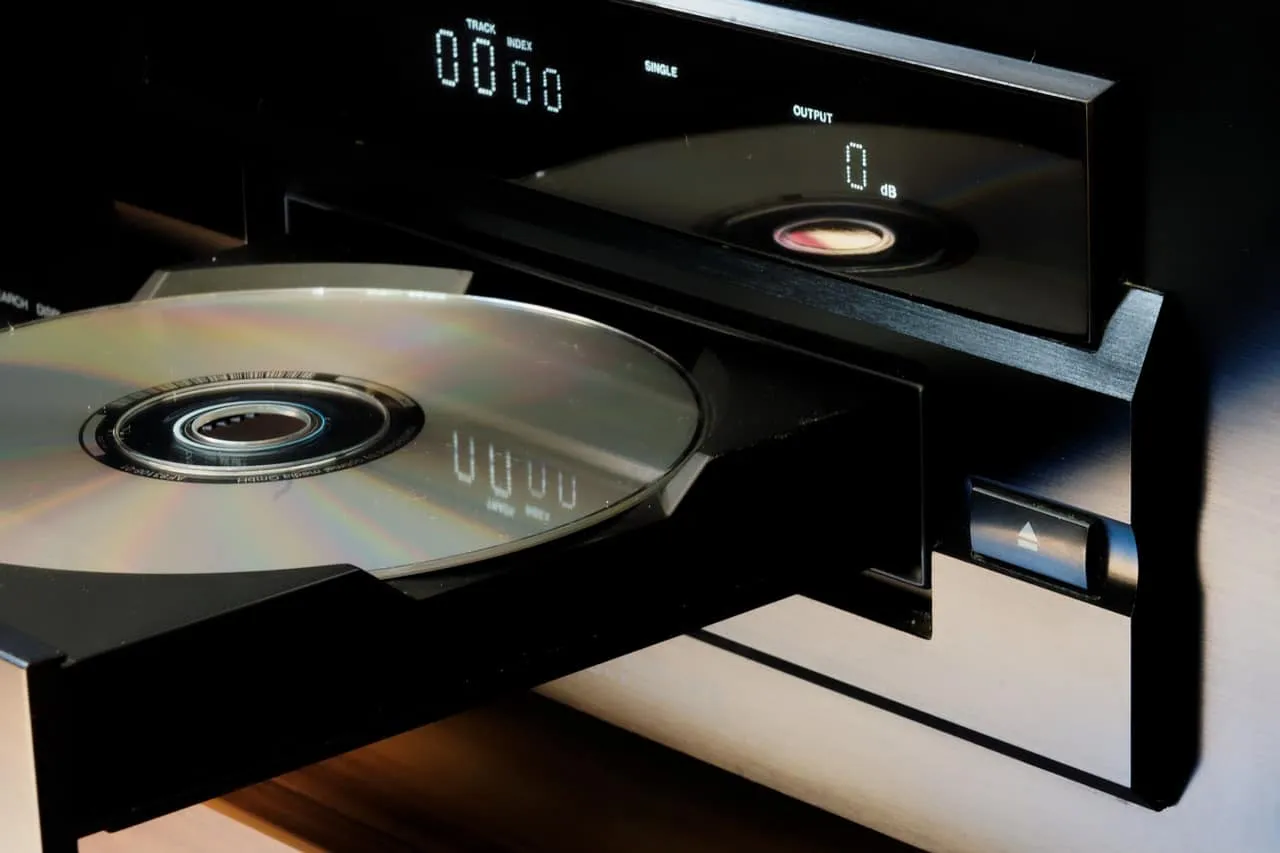Vinyl Mastering vs Digital Mastering: Key Differences Explained
By Philip Kinsher of Disc Makers Blog
Imagine listening to your music — not through earbuds — but spinning on a turntable. It’s warm, it’s textured, it’s alive, and it’s exactly what you get when you go from waveform to wax. Making the leap from digital to vinyl isn’t just cosmetic — it means a wholly different mastering approach. Here’s why that’s necessary, and here’s how each path shapes the final sound you hear.
Why the format changes the rules
Mastering engineers customize the final audio based on the playback medium. With Disc Makers’ vinyl mastering process, that means building the process around the physical mechanics of the vinyl groove: bass-heavy content needs to be tamed, stereo must be collapsed at low frequencies, and dynamics must be managed tightly so that the cutter head doesn’t skip or clip.
Digital mastering, on the other hand, is optimized for CD, streaming, and digital convenience. There are no groove constraints, but options for loudness and precision.
Handling bass, stereo, and groove constraints
Vinyl mastering requires that the bass be below ~80Hz to be mono and limited, otherwise the needle risks jumping grooves. We emphasize this tradeoff as well, as too much stereo bass becomes a nightmare during playback. Digital mastering has no such limitation in that the mix can keep stereo depth and full low-end punch.
Dynamics and loudness
Digital masters are often pushed hard when it comes to limiting and compression. This is known as the “loudness war.” This is designed so that tracks sound competitive on both streaming and radio. Digital mastering helps elevate volume while also drawing attention to clarity and punch. In contrast, vinyl can’t endure heavy limiting; too much loudness creates issues that the physical groove can’t handle. With this in mind, vinyl mastering needs more headroom and softer peaks. That in turn preserves the integrity of the groove and ongoing reliable playback.

Why does vinyl sound “warmer?”
So what is it about vinyl that makes it sound warmer or more authentic? Many audiophiles perceive analog recordings as being more musical and rich. There’s a tactile quality to them that digital formats simply can’t compare to. But digital has its own benefits, like clear sound, precision, and fidelity.
How are vinyl mastering vs. digital mastering handled?
We’re glad you asked! Digital mastering is handled with DAWs. Our expert sound engineers use a combination of software tools, plug-ins, recallable settings, and full visual feedback. This makes the process fast, flexible, and even ideal for multiple revisions. Vinyl mastering is done at Disc Makers’ SoundLAB, where we use specialized analog gear and custom signal chains to prepare cuts for physical pressing. Physical constraints dictate every EQ and compression move, with sequencing and spacing designed for side-break transitions.
Vinyl production workflows: what’s actually happening?
After mastering, a vinyl release goes through physical cutting and pressing. The master must be delivered in a format that matches the pressing requirements. This means either analog transfer or a specific file format designed for cutting. Digital masters can be exported as either WAV or DDP files for CD replication or streaming delivery since there are no physical limitations to work around.
The end result: what you’re hearing
When it all comes together, what are you really hearing? Vinyl offers mid-range warmth, gentle highs, and natural compression thanks to the physics of the grooves themselves. High-end sounds may feel softer with the bass more rounded with a slightly narrower stereo sound. Digital offers a wider dynamic range, sharper stereo separation, and bright, crispy highs. It’s also often louder, clearer, and more transparent-sounding.
So there’s really no answer to the question of “which is better?” A well-mastered digital track sounds polished and precise. It takes advantage of the full spectrum of sound. A well-mastered vinyl feels more immersive and organic. Both have their value and both have their place.
So which should you choose?
With all of that being said, which option should you choose? If you want the classic analog feel and that warm sound, plus you have fans that will happily invest in the collectors’ format, go with vinyl mastering. Keep in mind that means softer highs, tighter bass, and extra headroom. If you’re looking to attract users who want the most dynamic punch, or you want those who love CDs, streaming, and playlists, digital mastering is how it’s done. You’ll get louder, wider, and sharper sound, without the physical constraints.
No matter which option you choose, you’ll want to prepare separate masters. You can’t use the same master for vinyl and digital. Each one requires dynamics tailored for its respective format. Let the mastering engineer know your playback formats and what your priorities are in terms of the sound. It bears mentioning that in doing so you should understand the trade-offs. Vinyl sacrifices some loudness and stereo depth to keep that groove fidelity while digital sacrifices analog warmth for more clarity and power.
So who wins in the vinyl mastering vs. digital mastering debate? Neither, and both. The differences run deeper than sound. Vinyl mastering means crafting audio for grooves, which includes respecting mechanical limits. Digital mastering is more about sculpting sound for impact — to be loud, detailed and precise. Both formats have their purpose, and in the right hands, both can truly shine.
If you’re planning out release strategies, you’ll ideally want to create two masters. Your vinyl cut (a big hit for collectors and die-hard fans) will bring fans that warmth and nostalgia they love. Your digital master will deliver that clear punch and precision that only digital can. With Disc Makers’ sound professionals guiding both, you can be sure that your music will always sound its best, no matter what format it lives on.
Ready to learn more? Get a free quote for your vinyl mastering or digital mastering and leave the production to the professionals. Contact us today to learn more.





